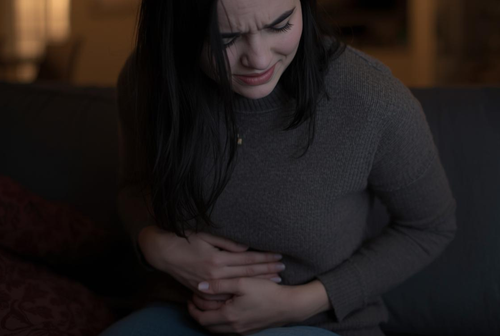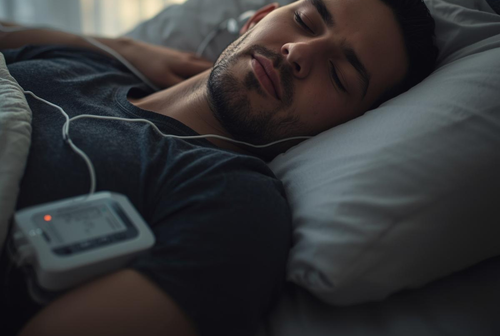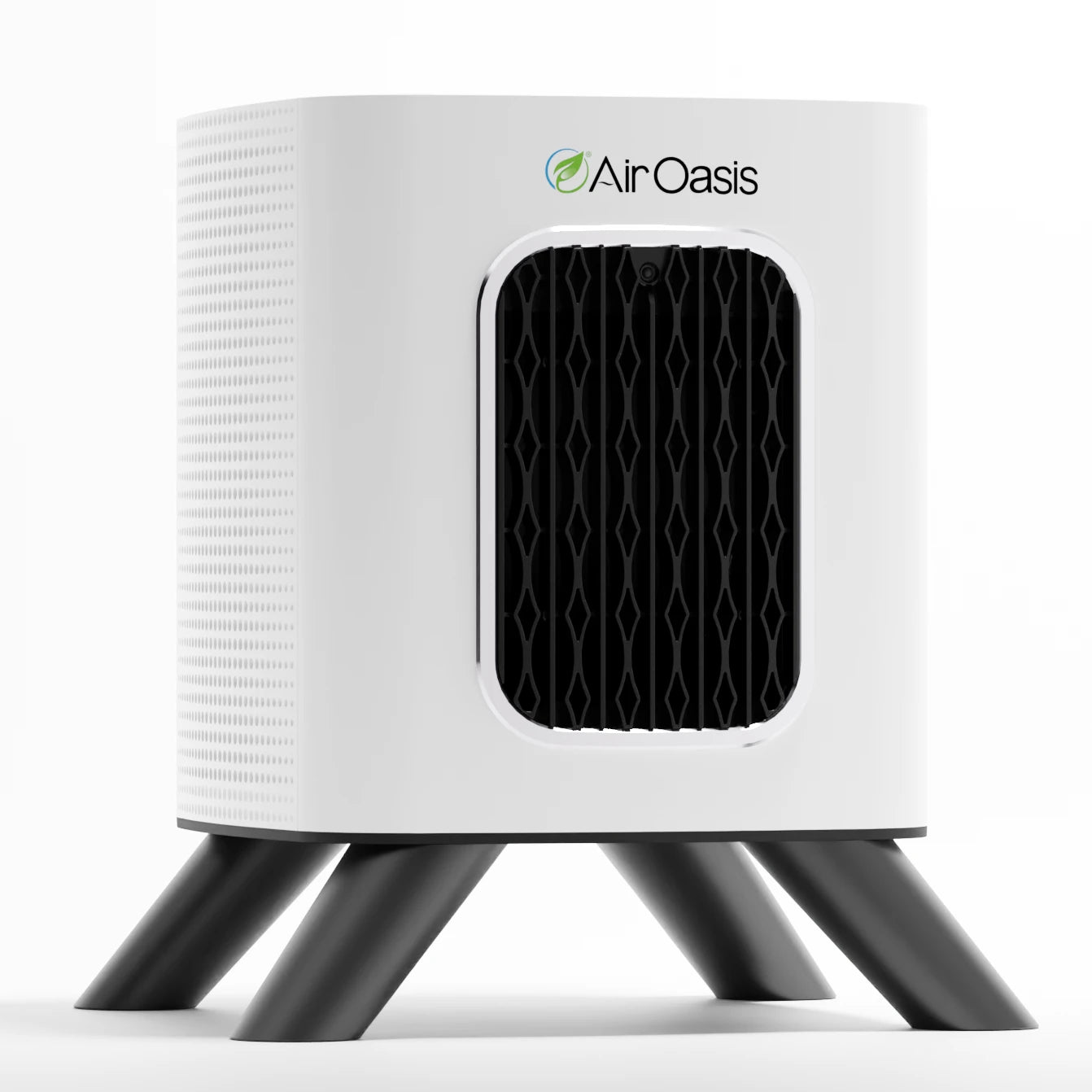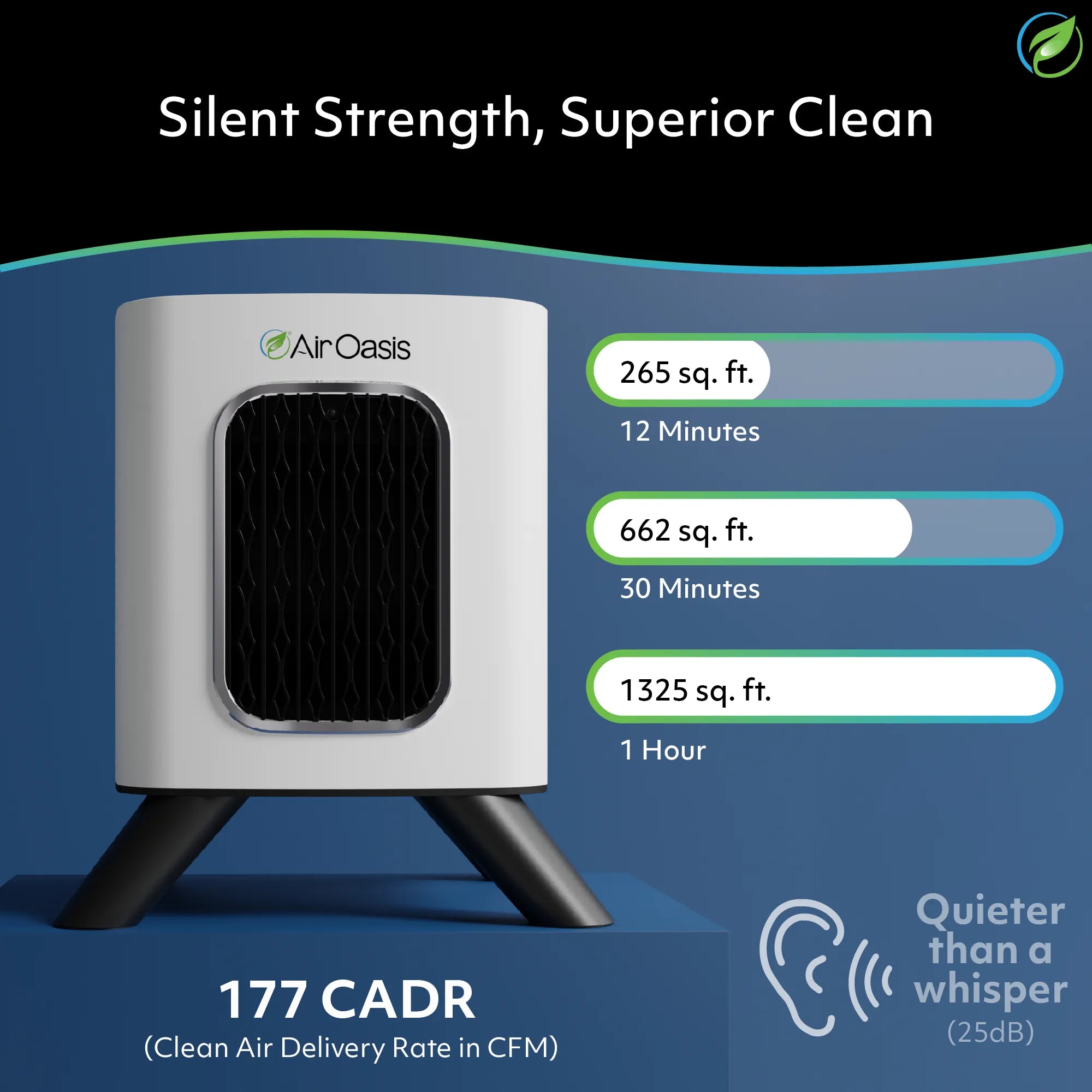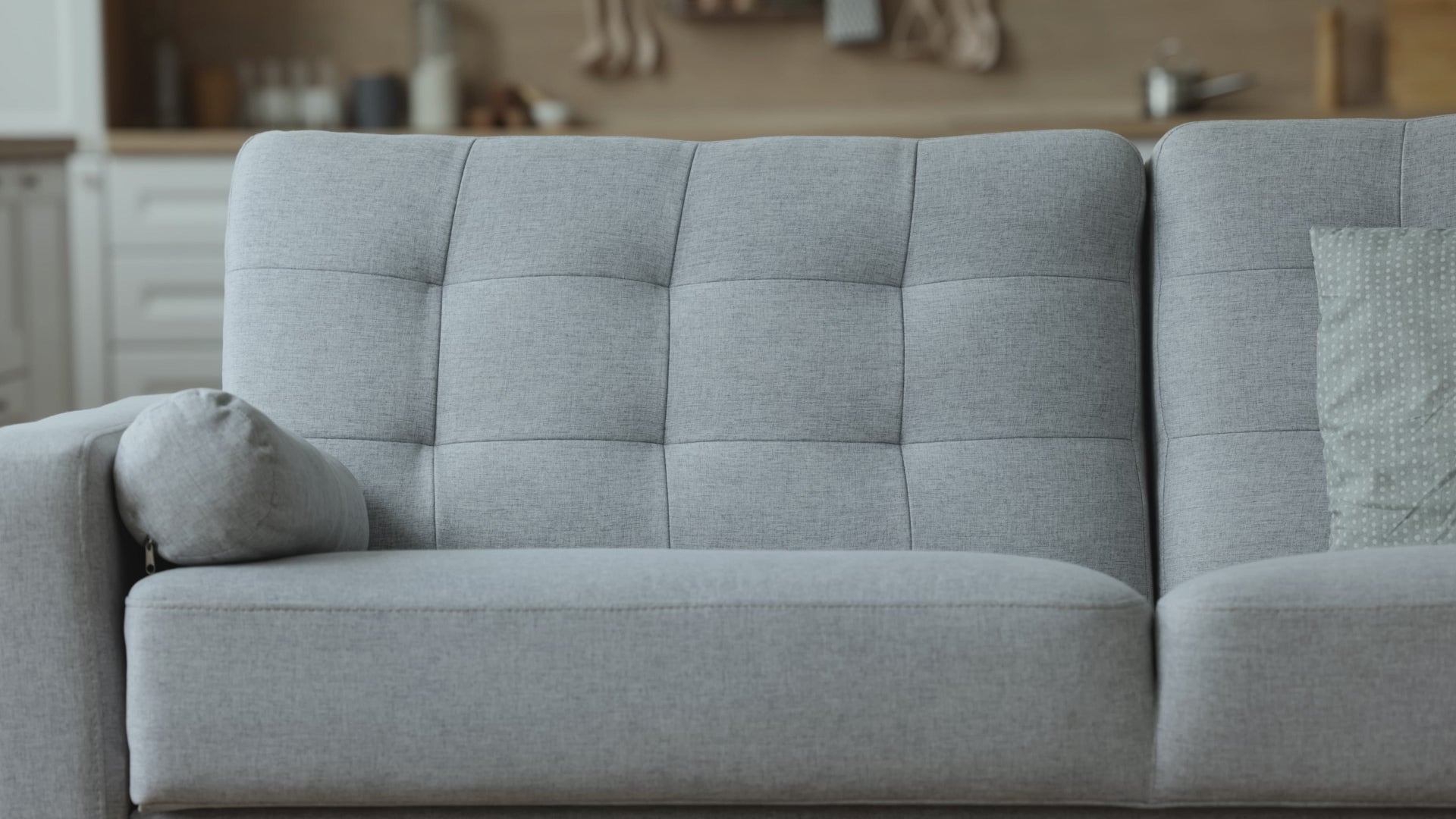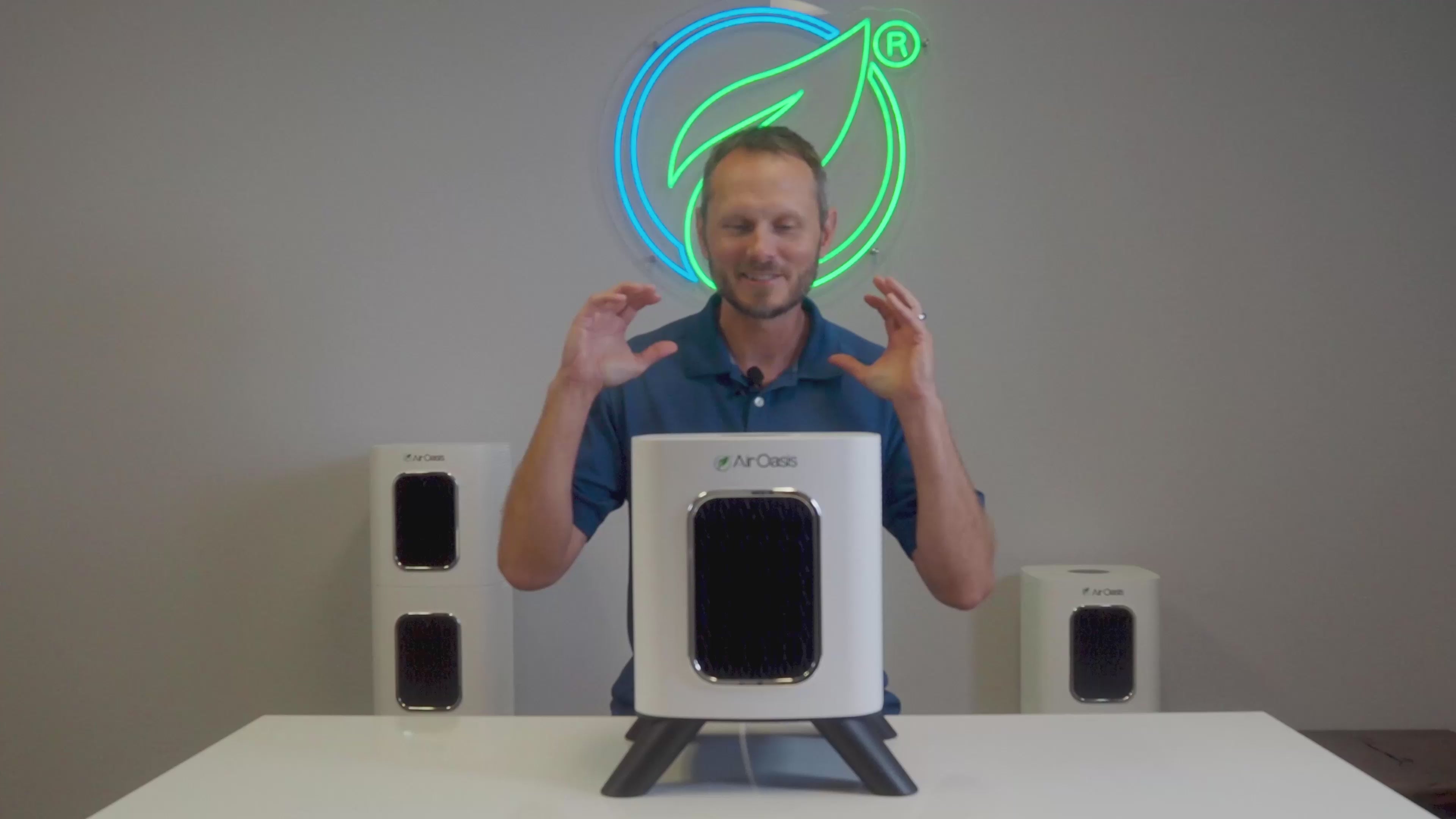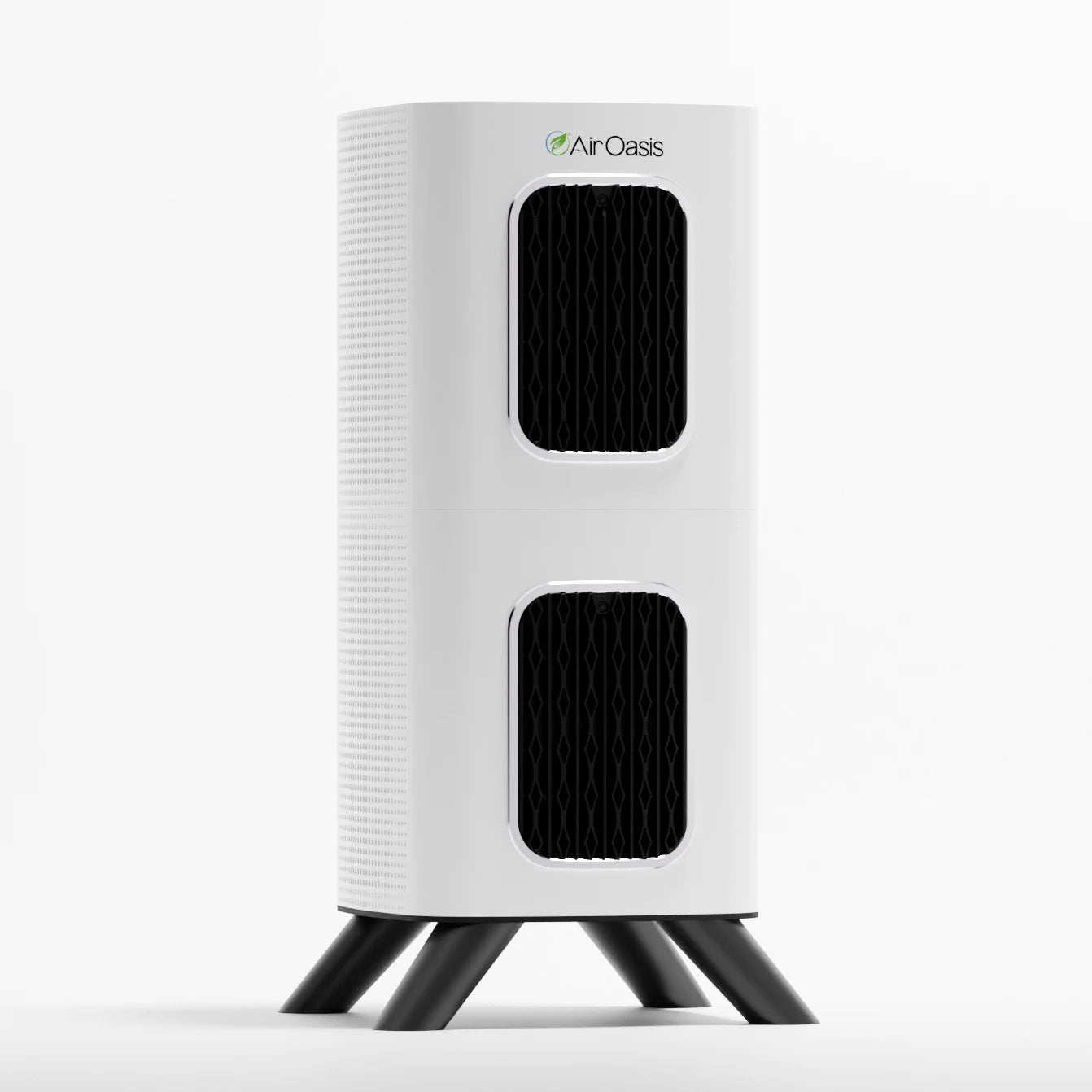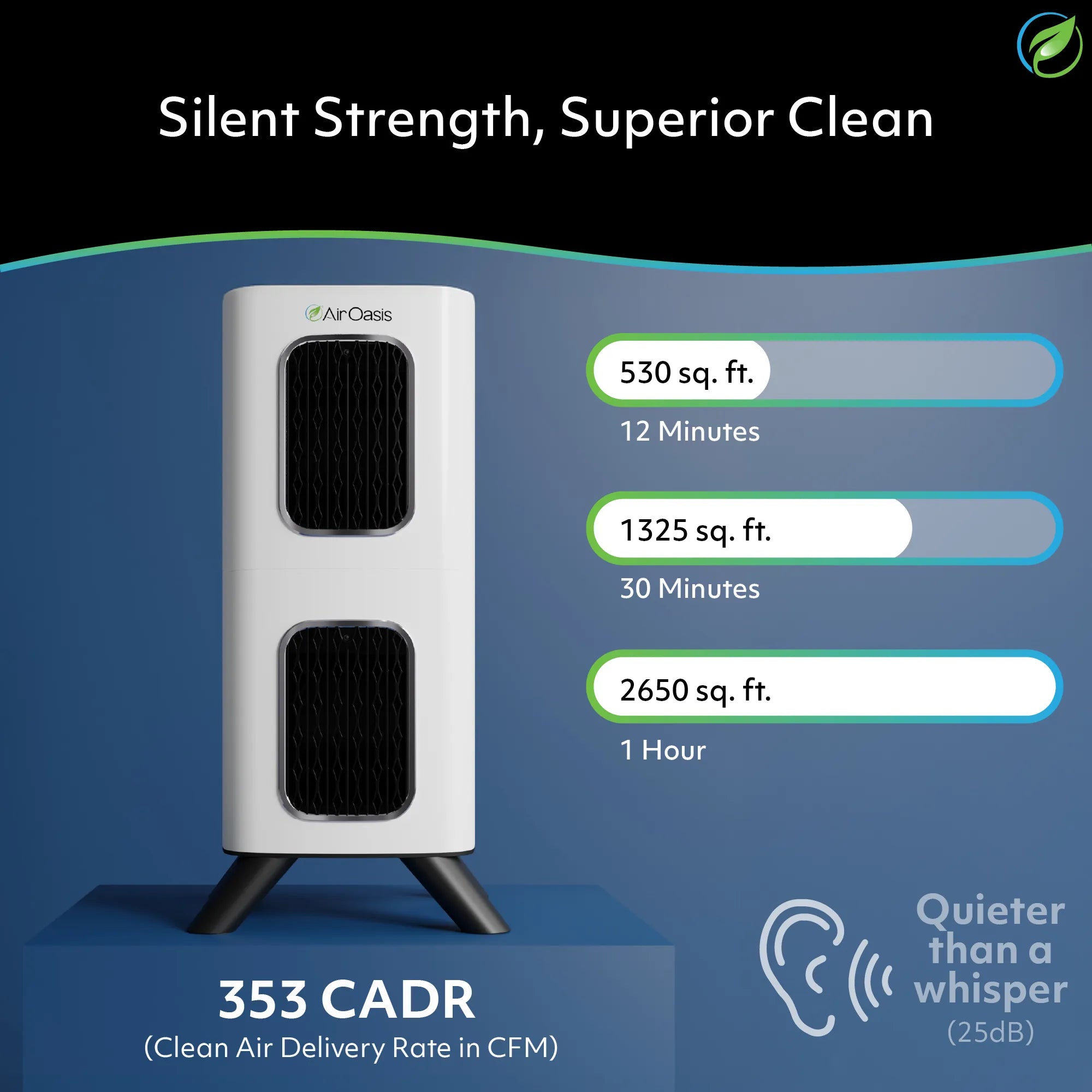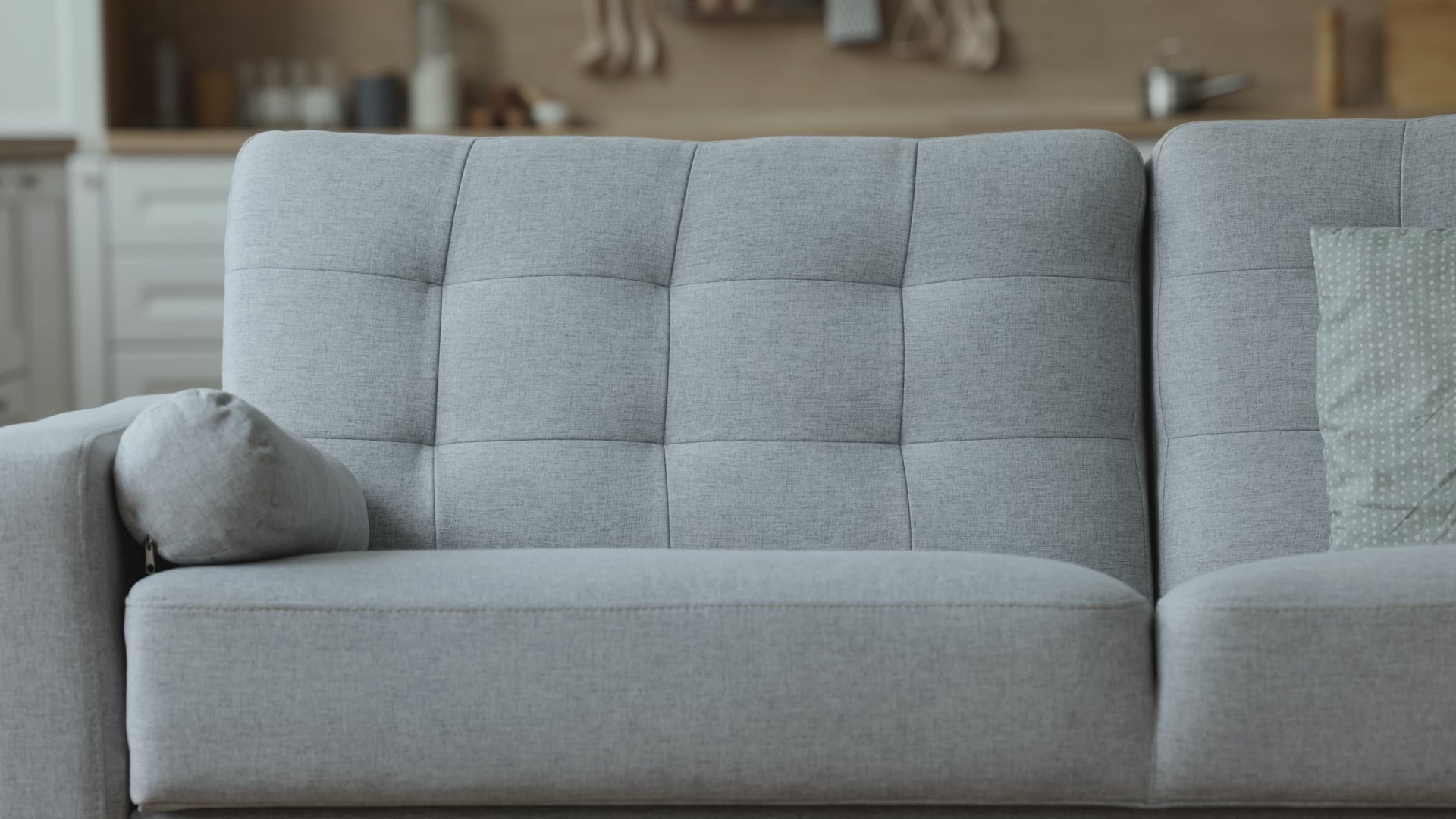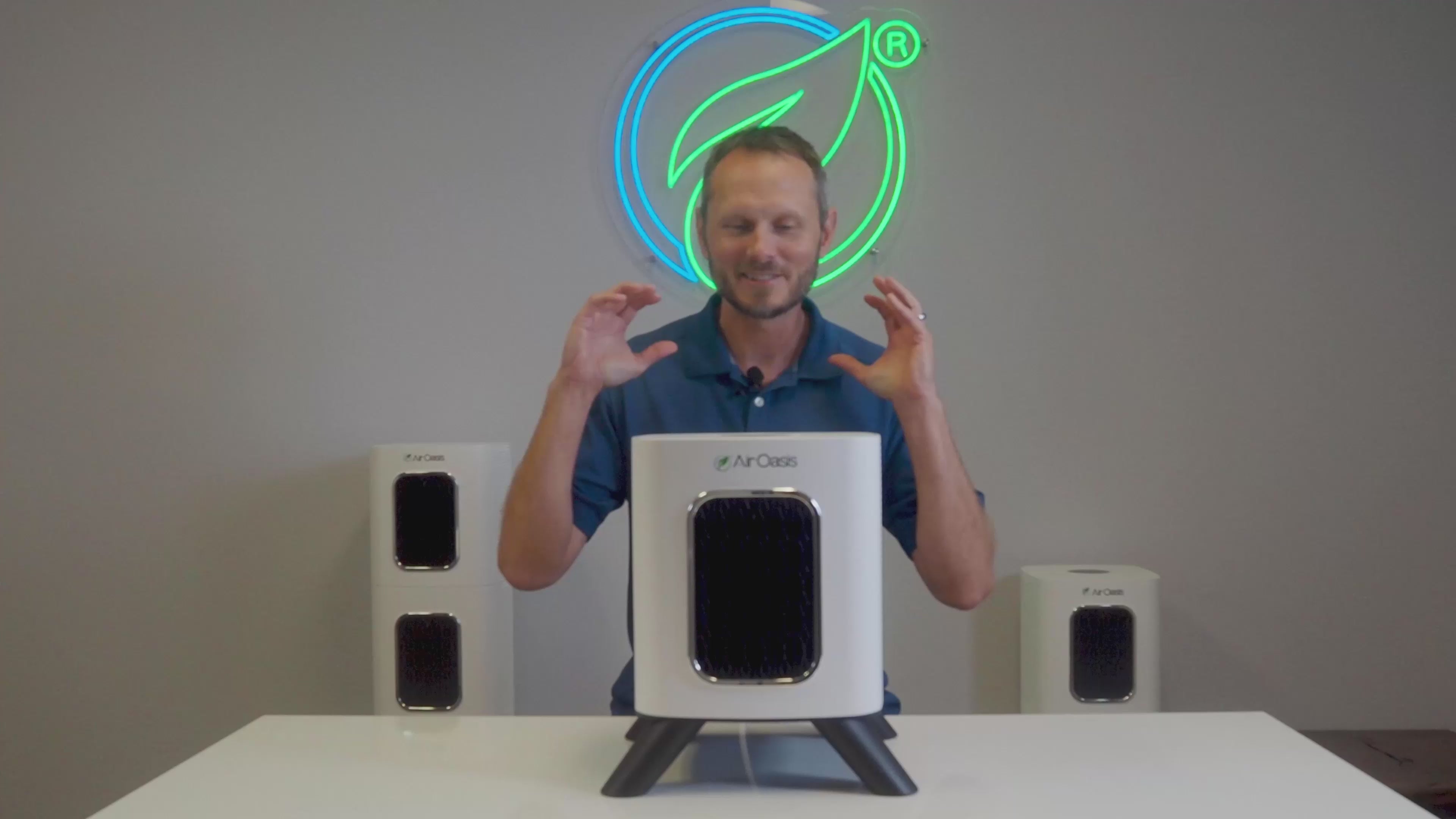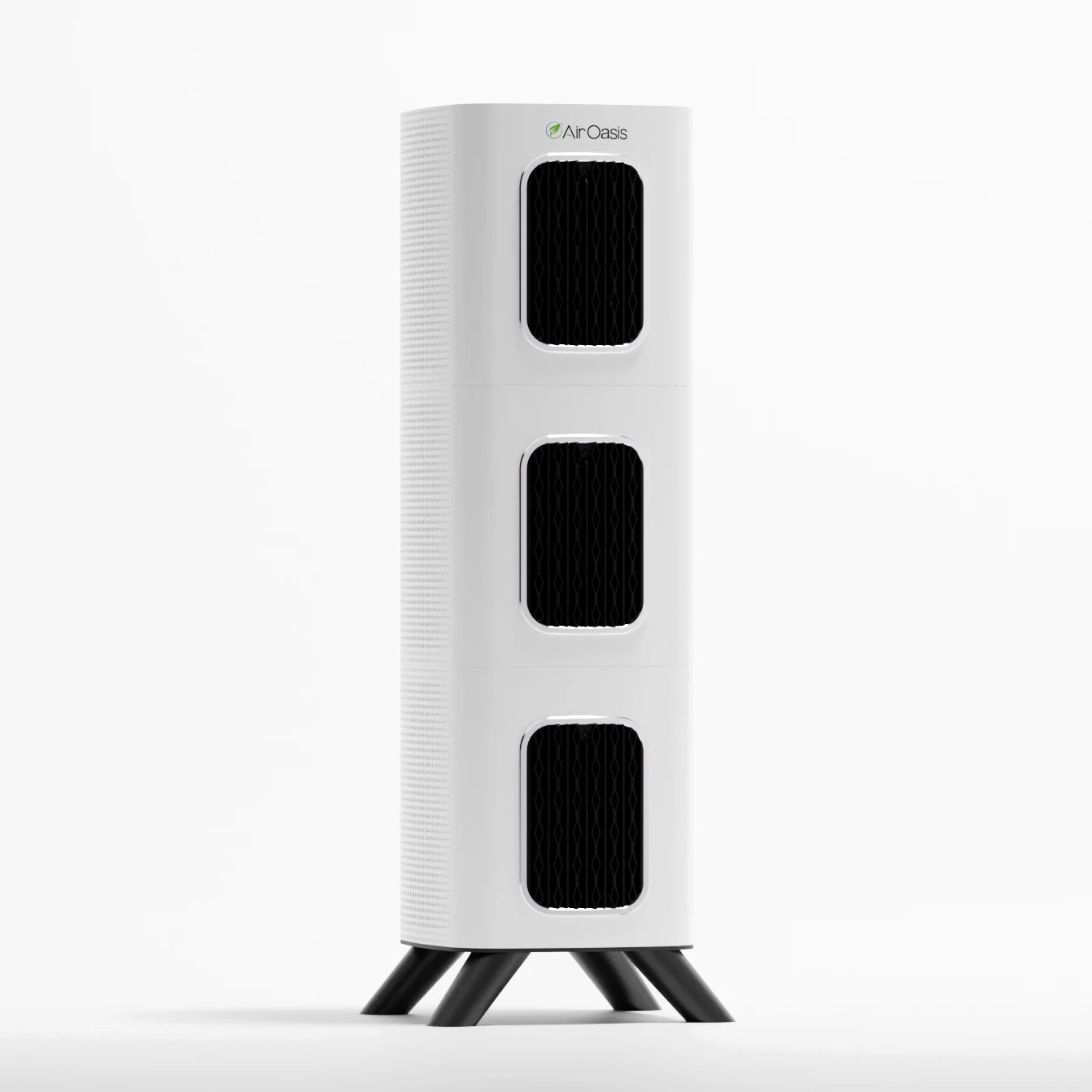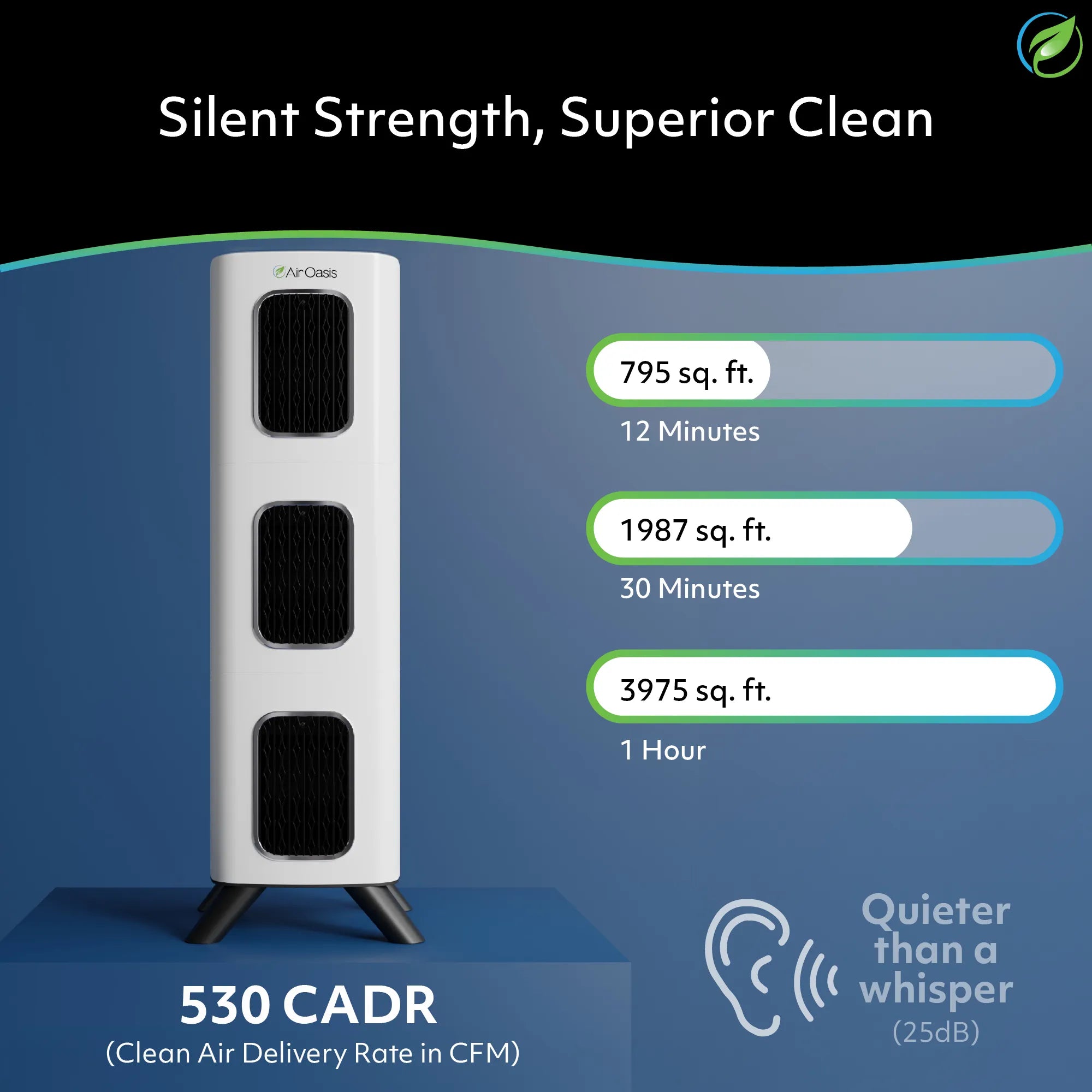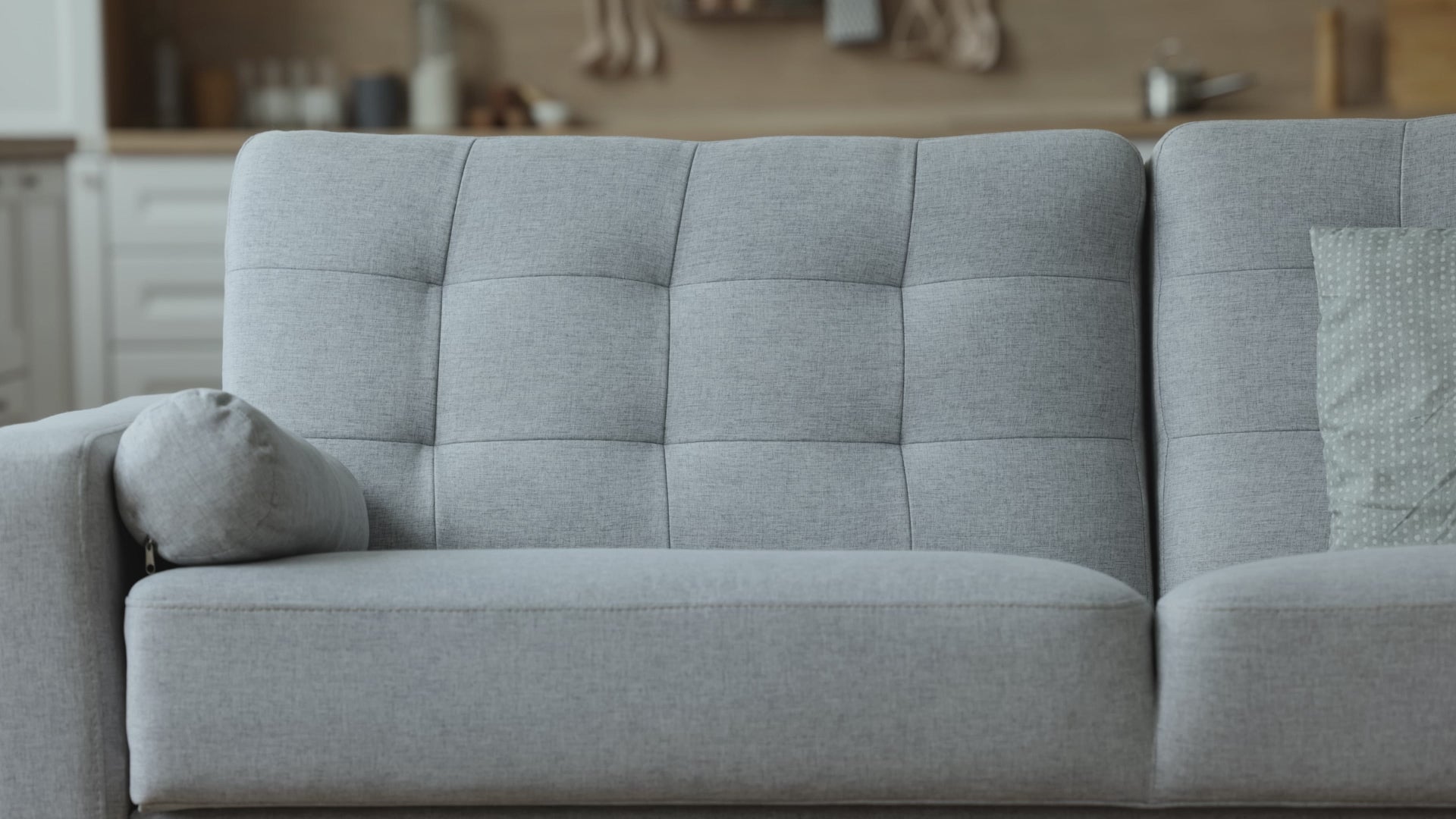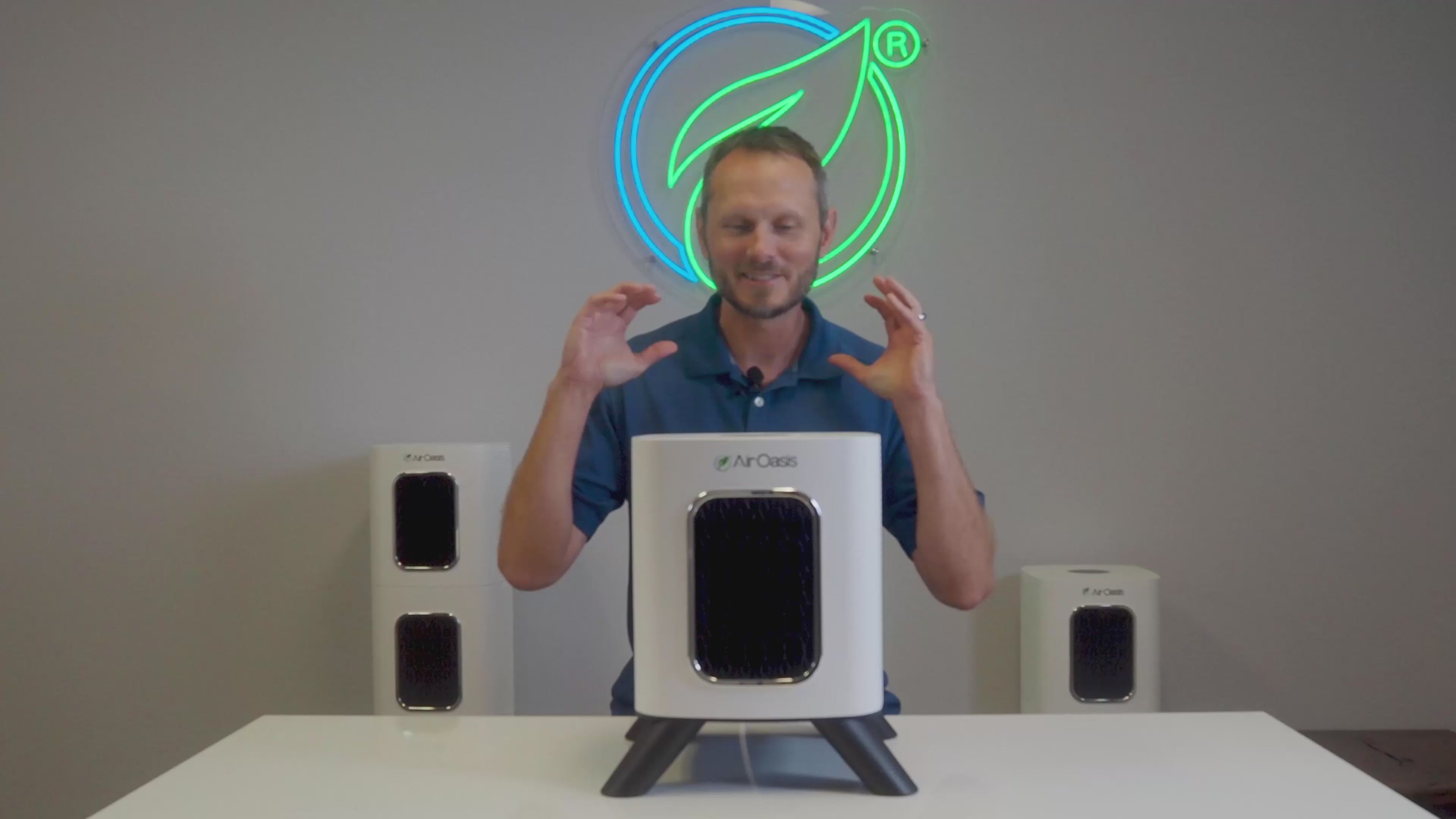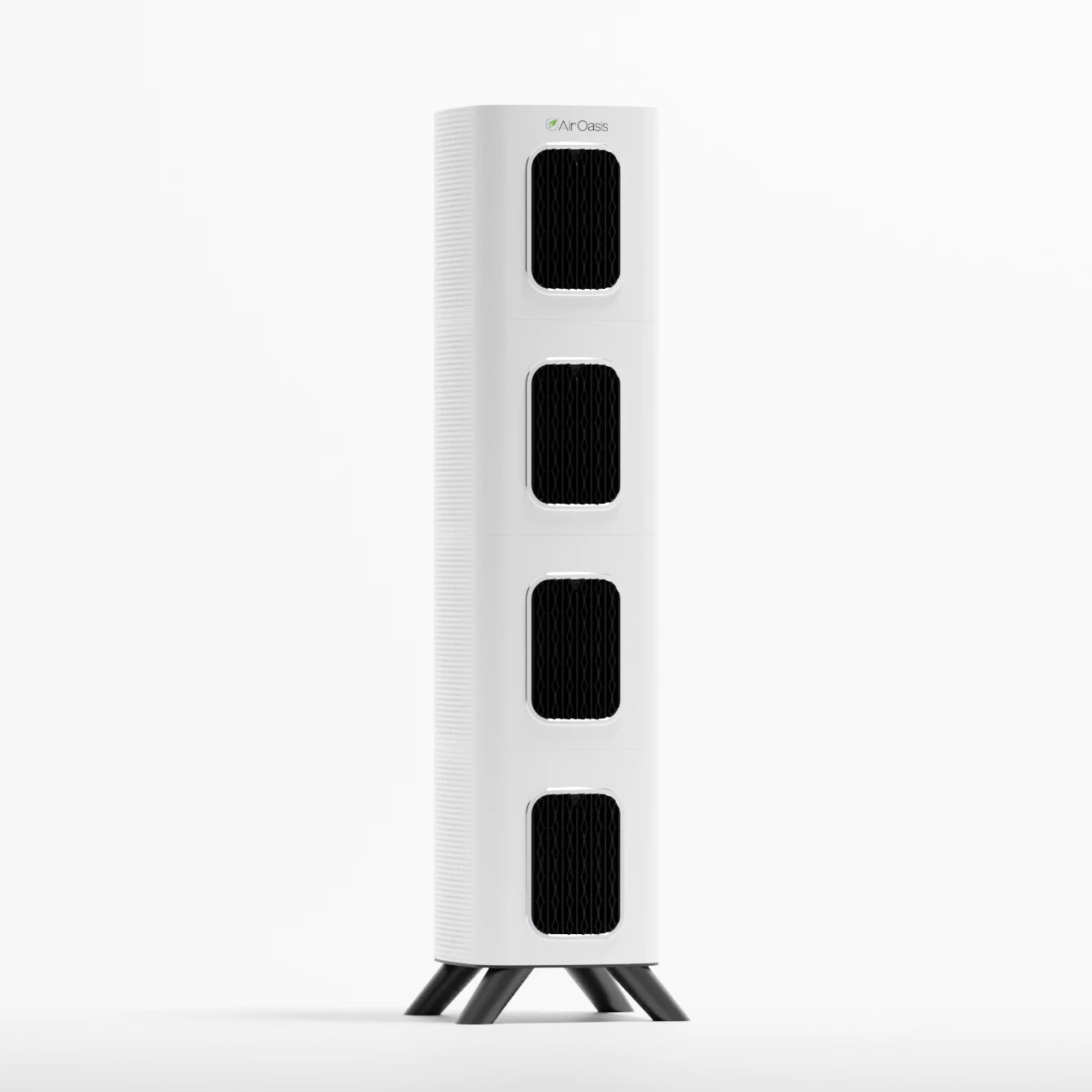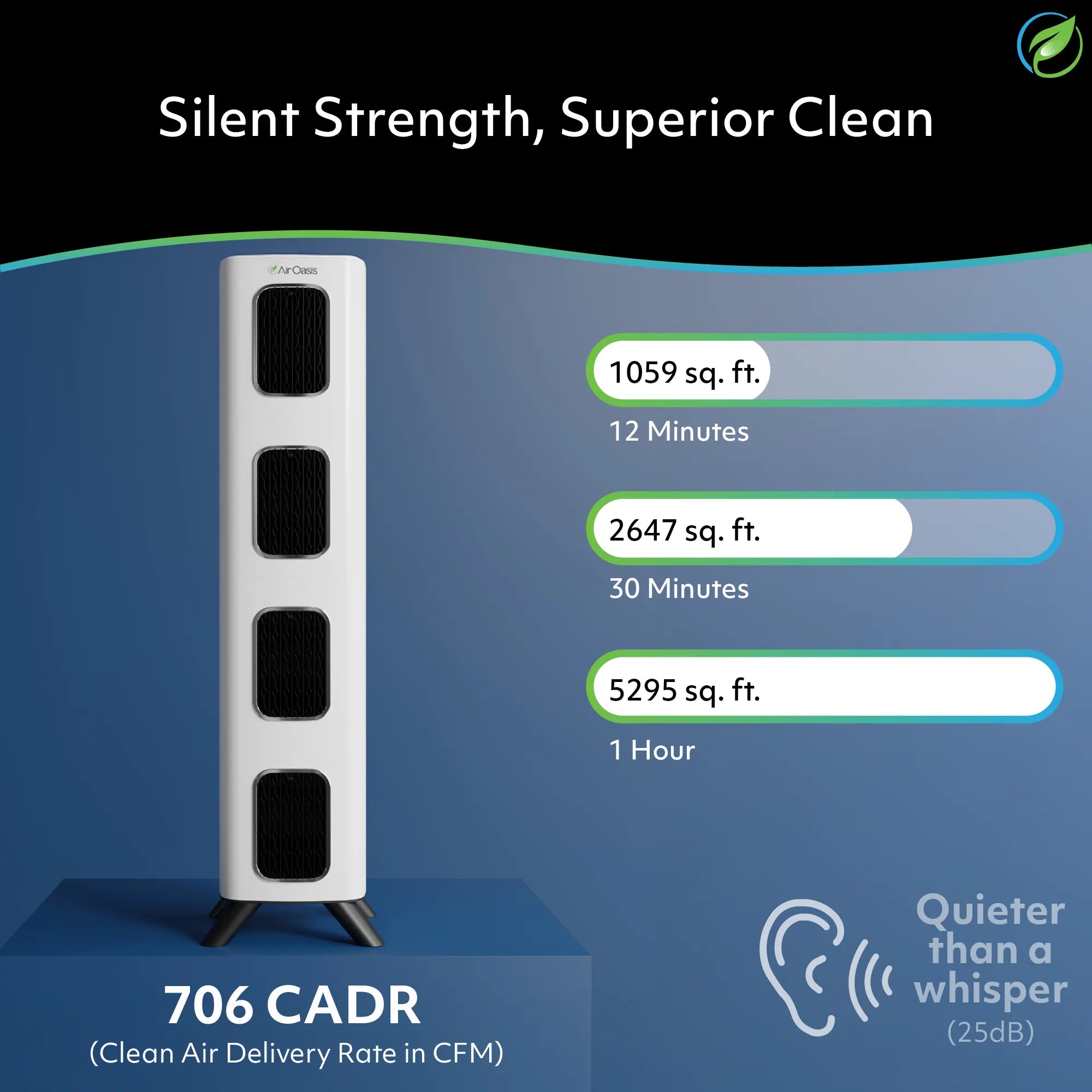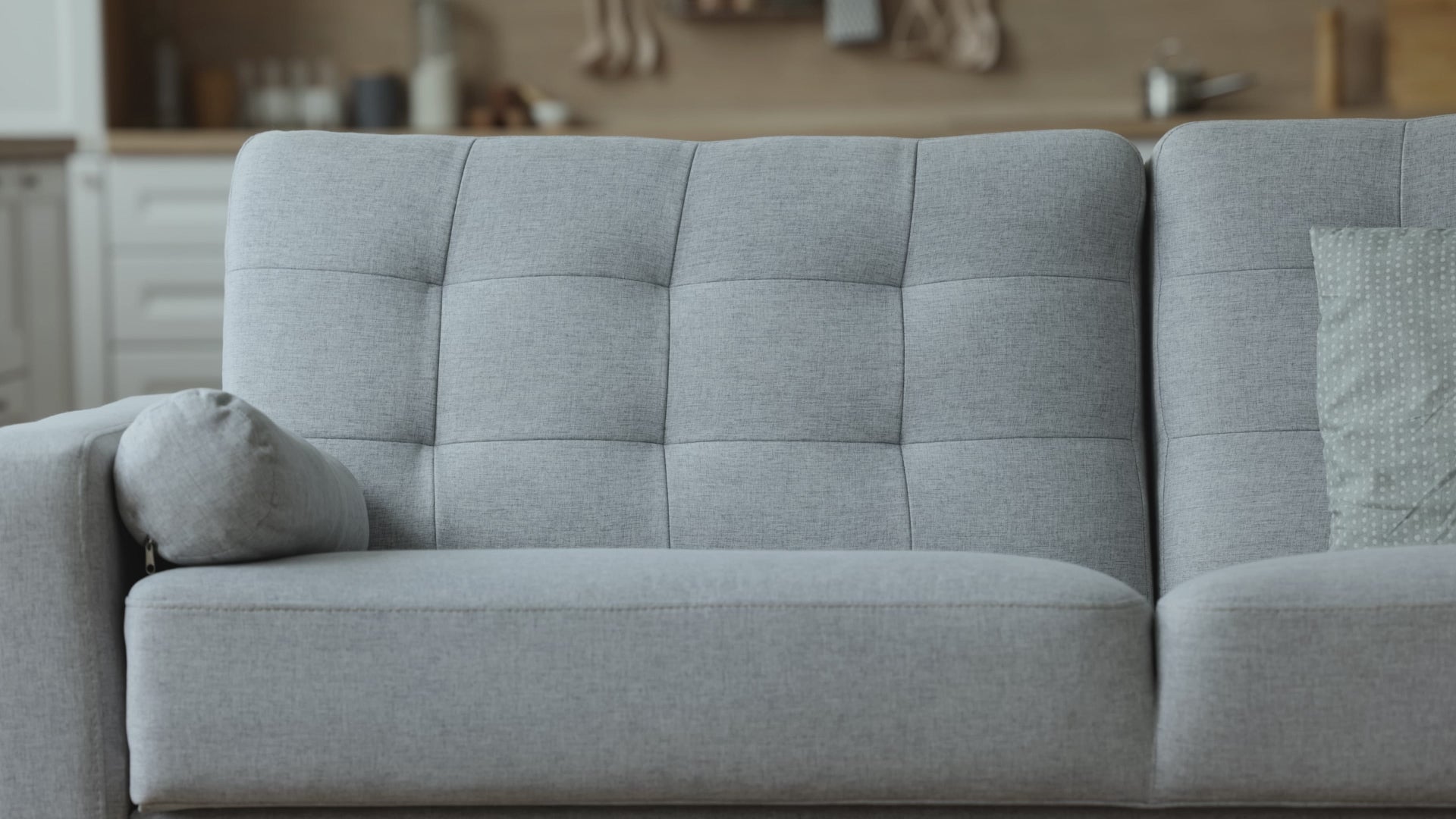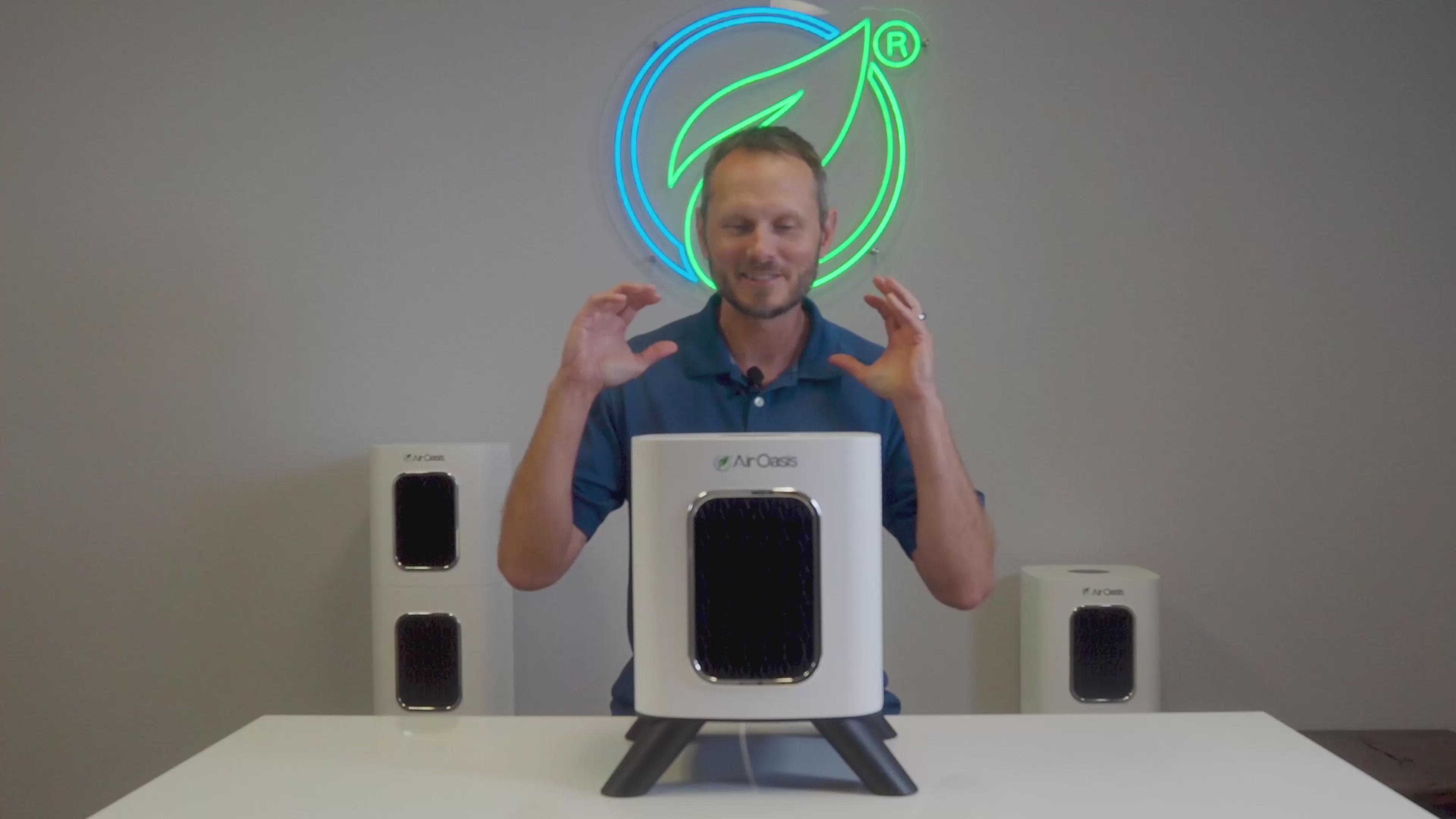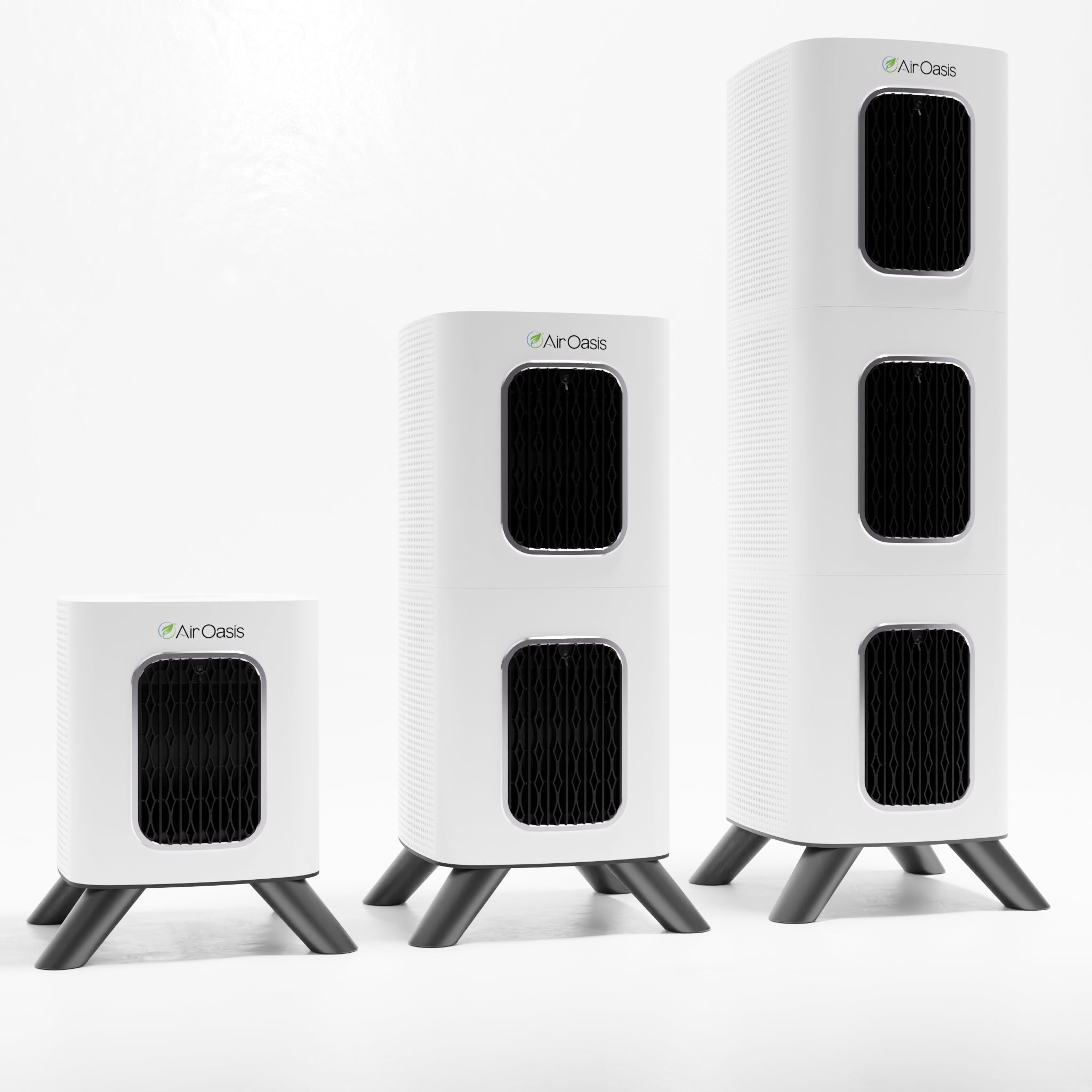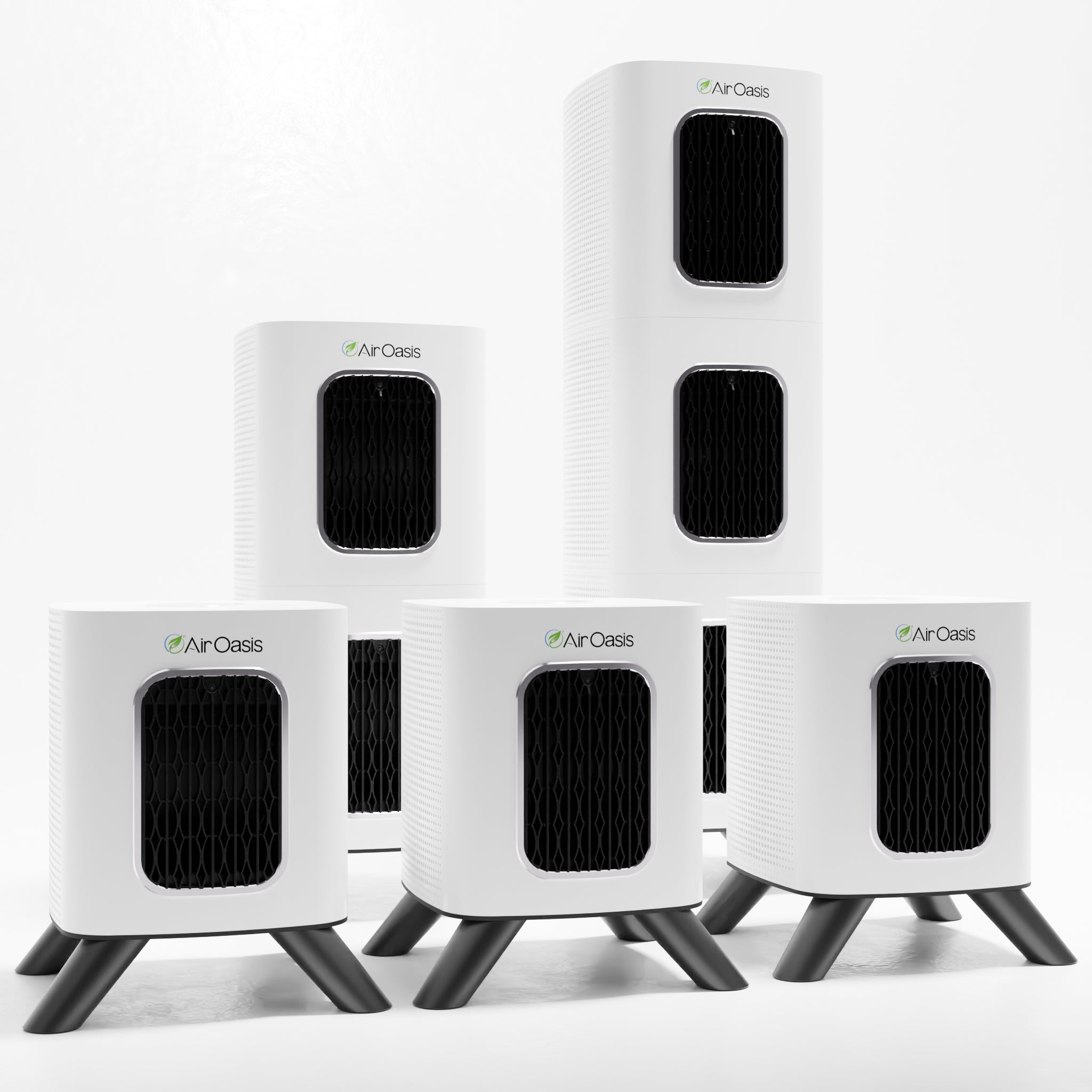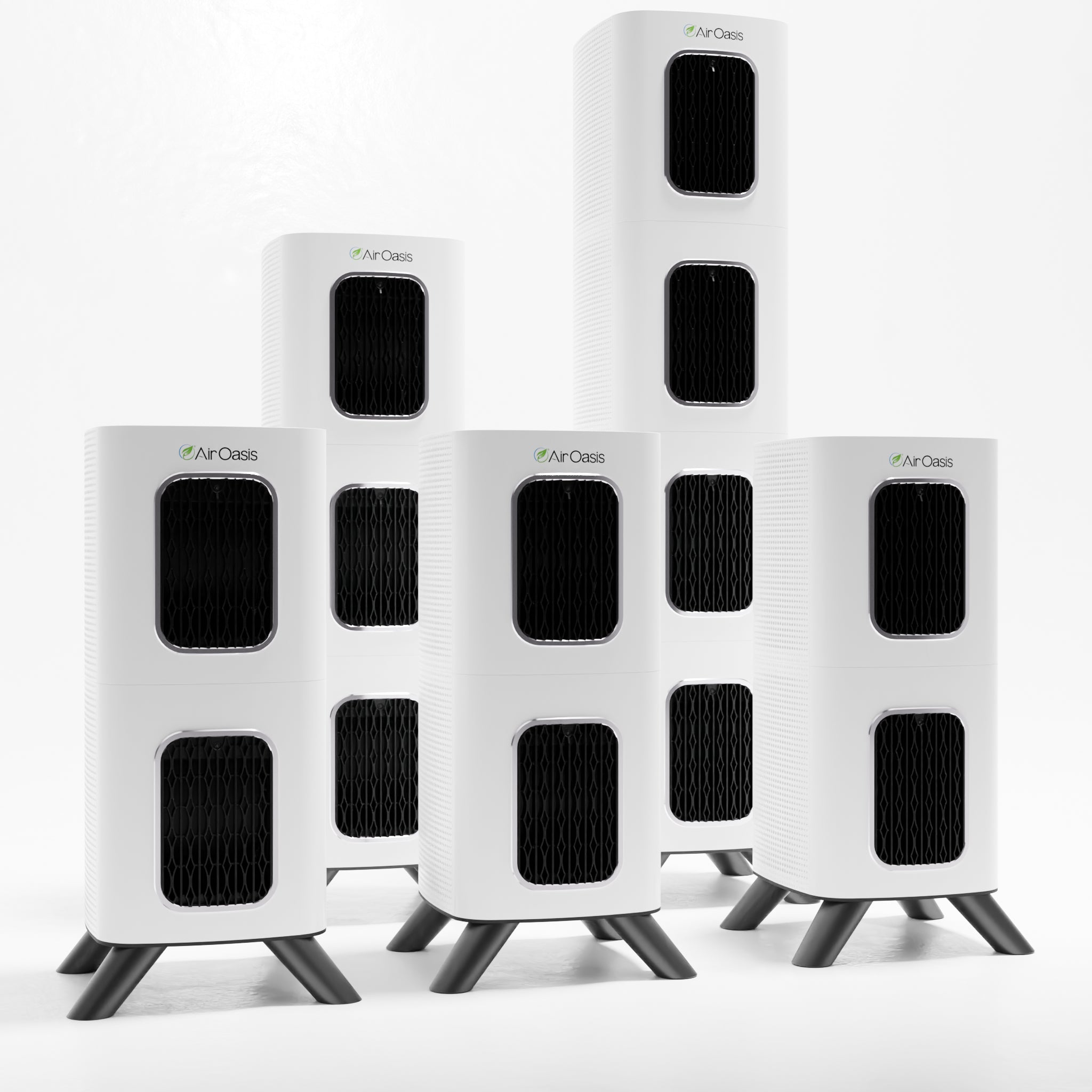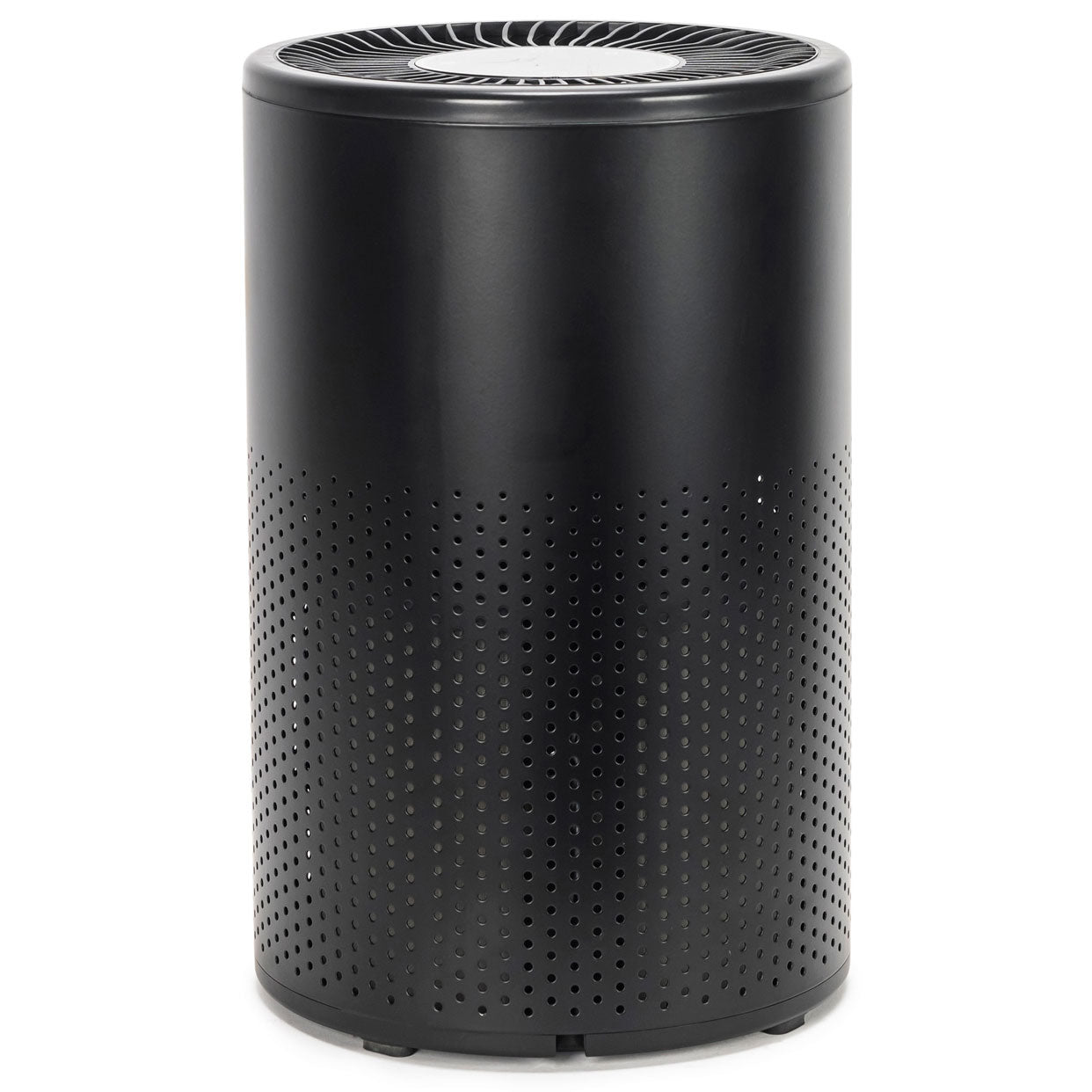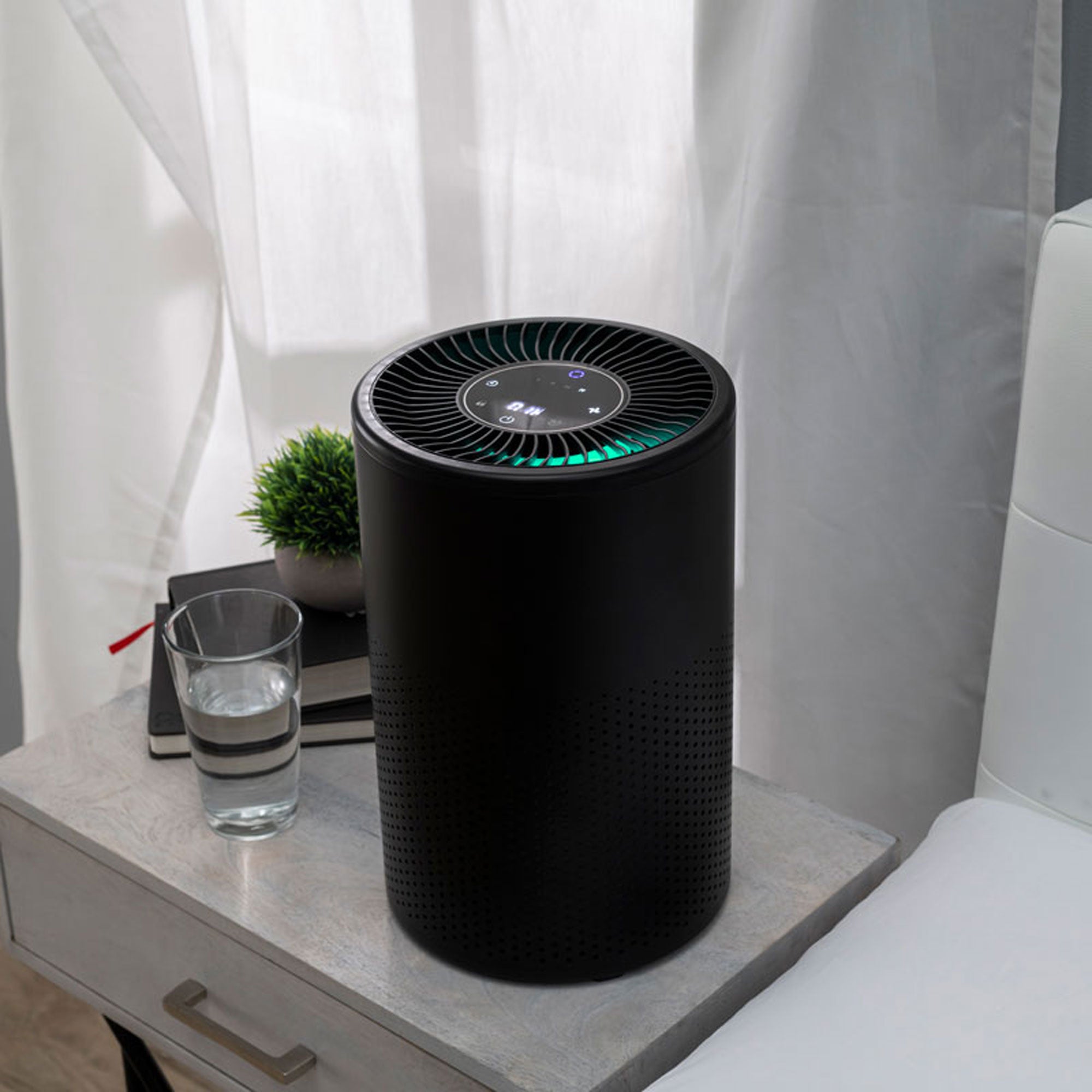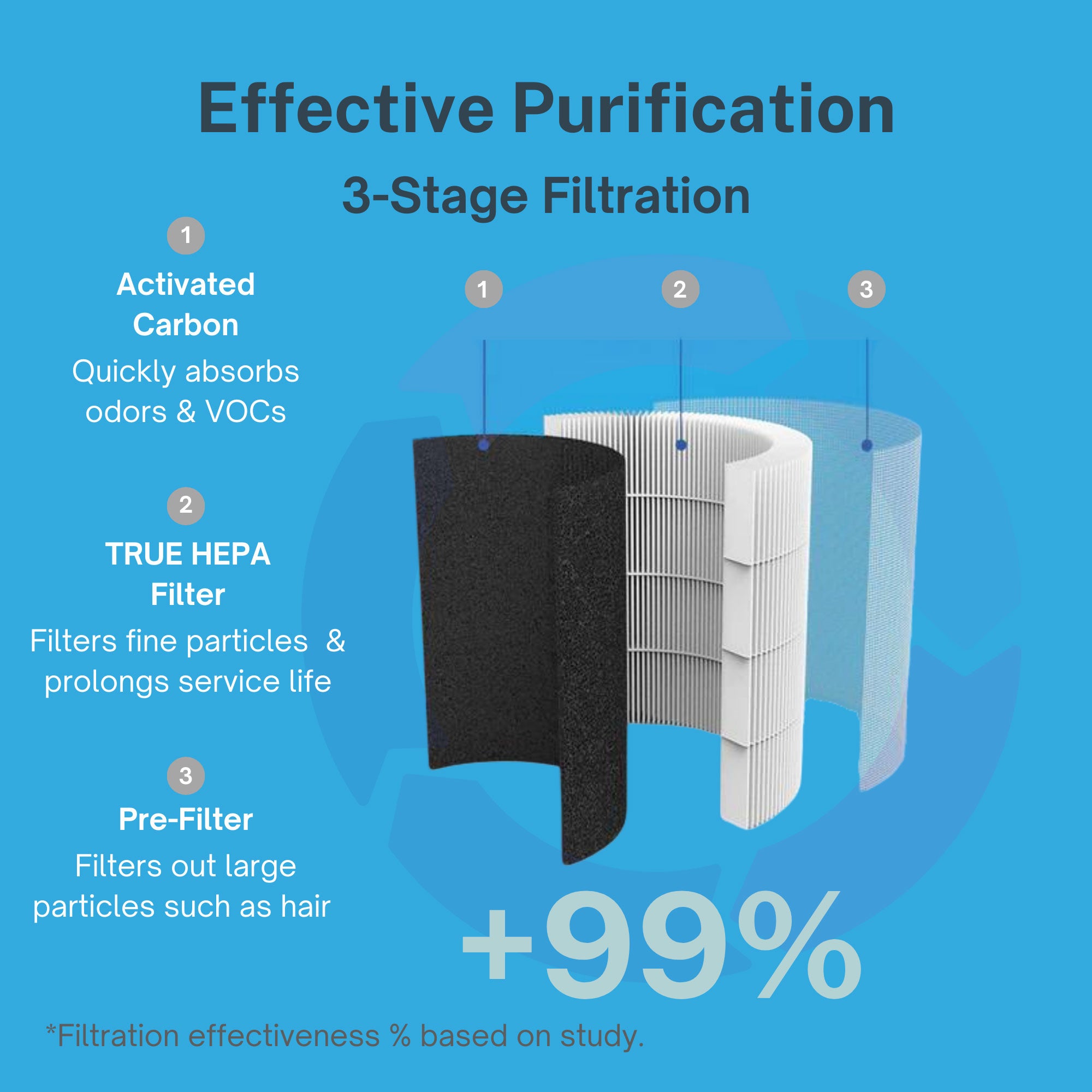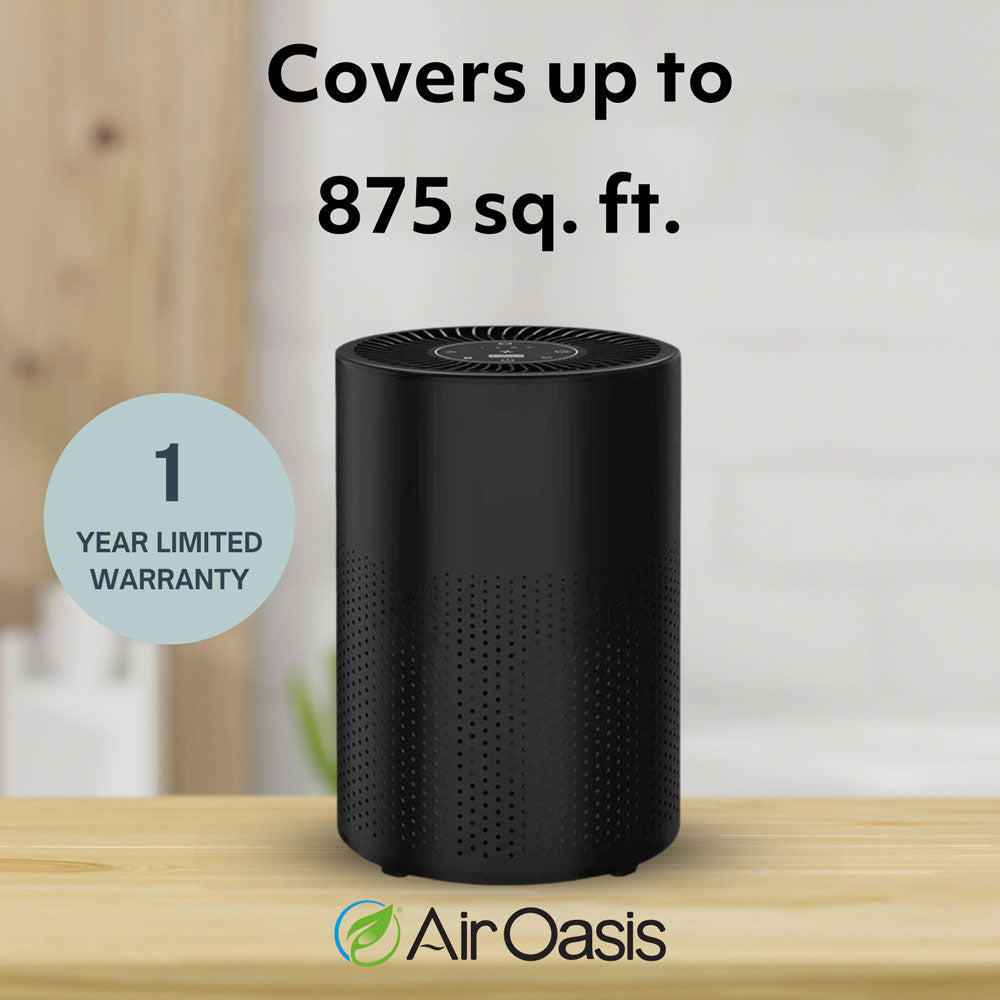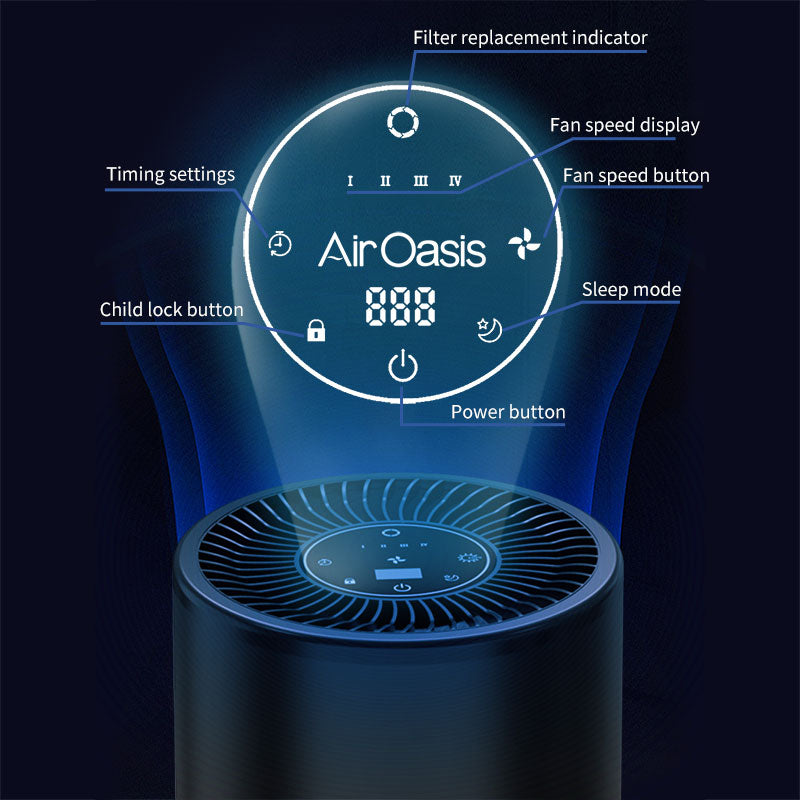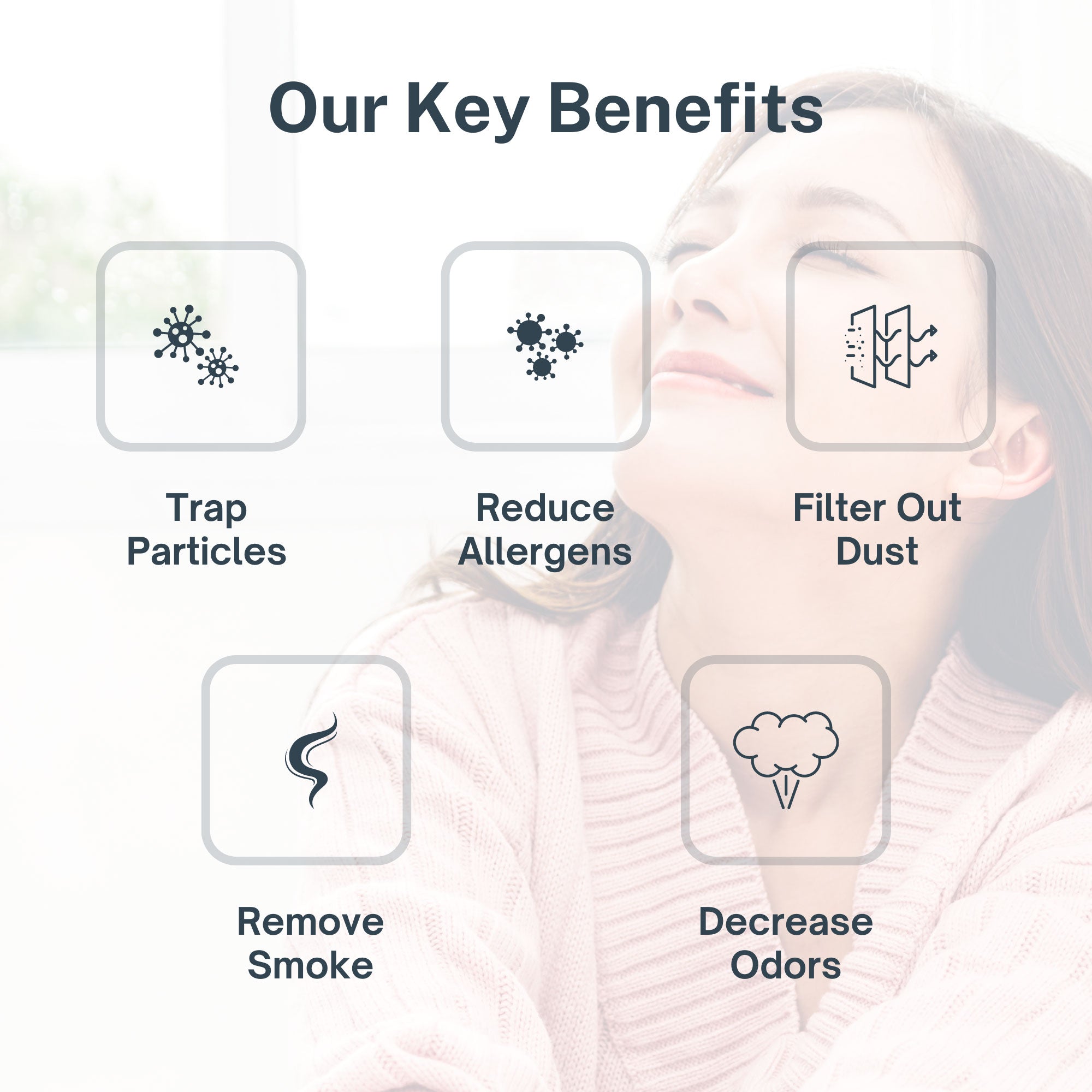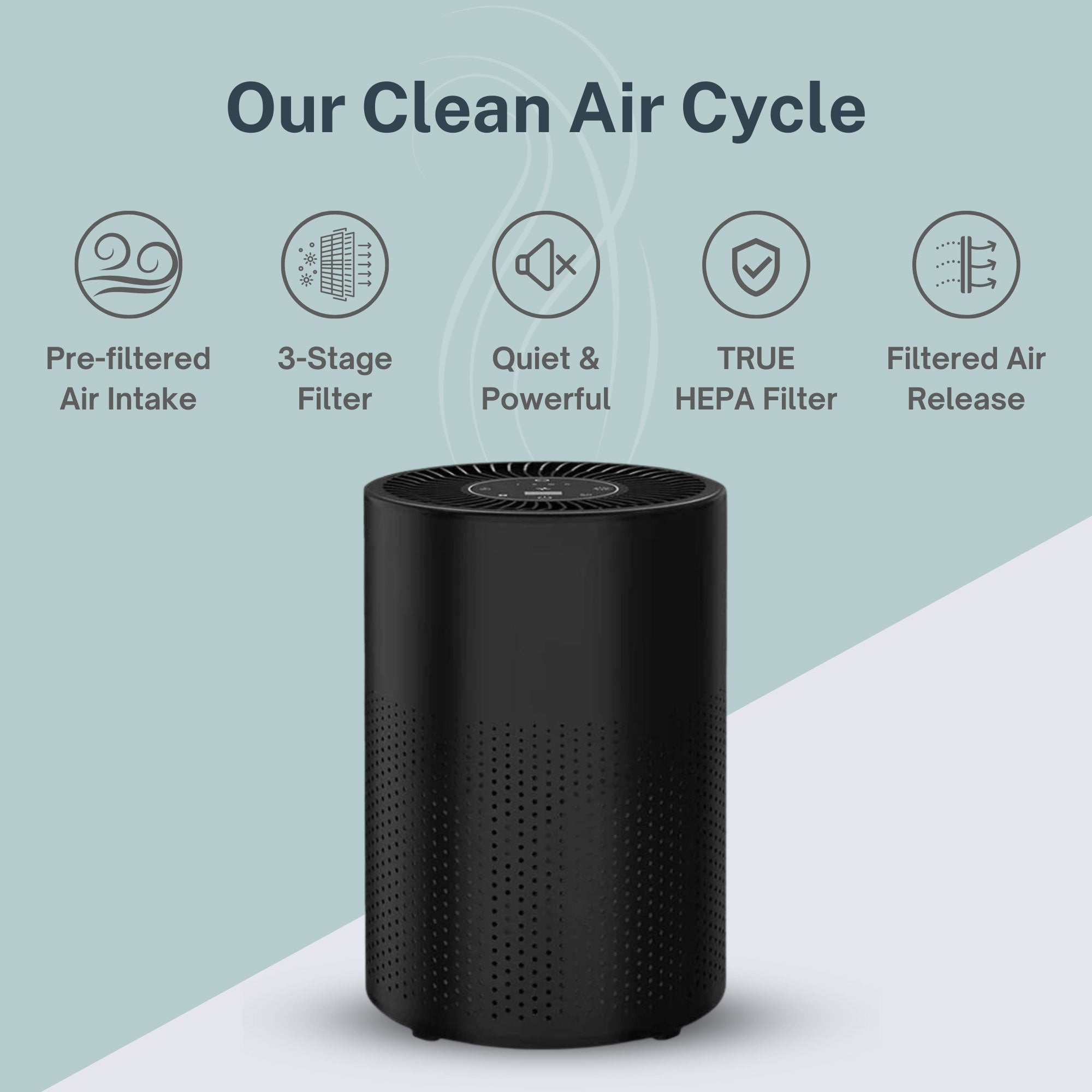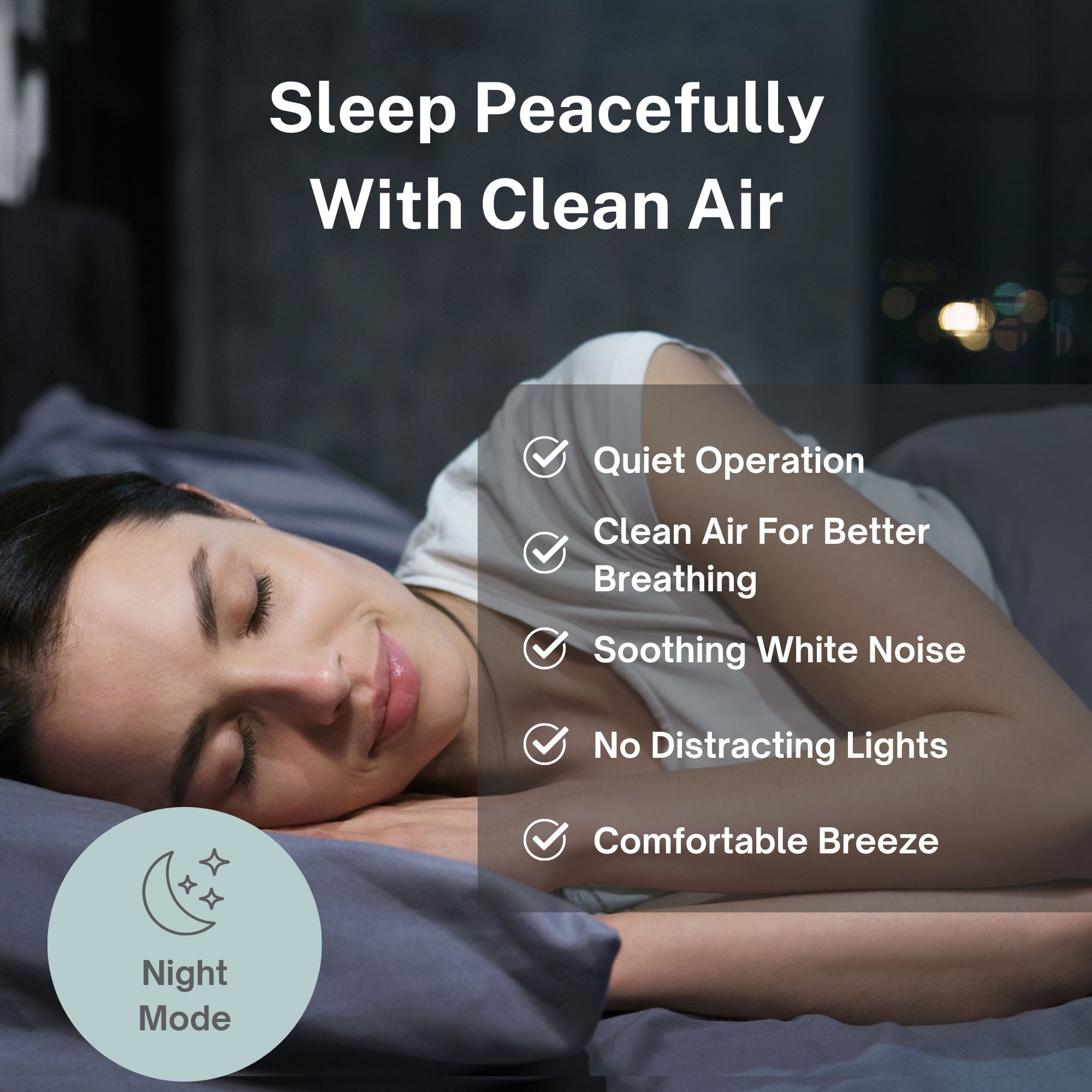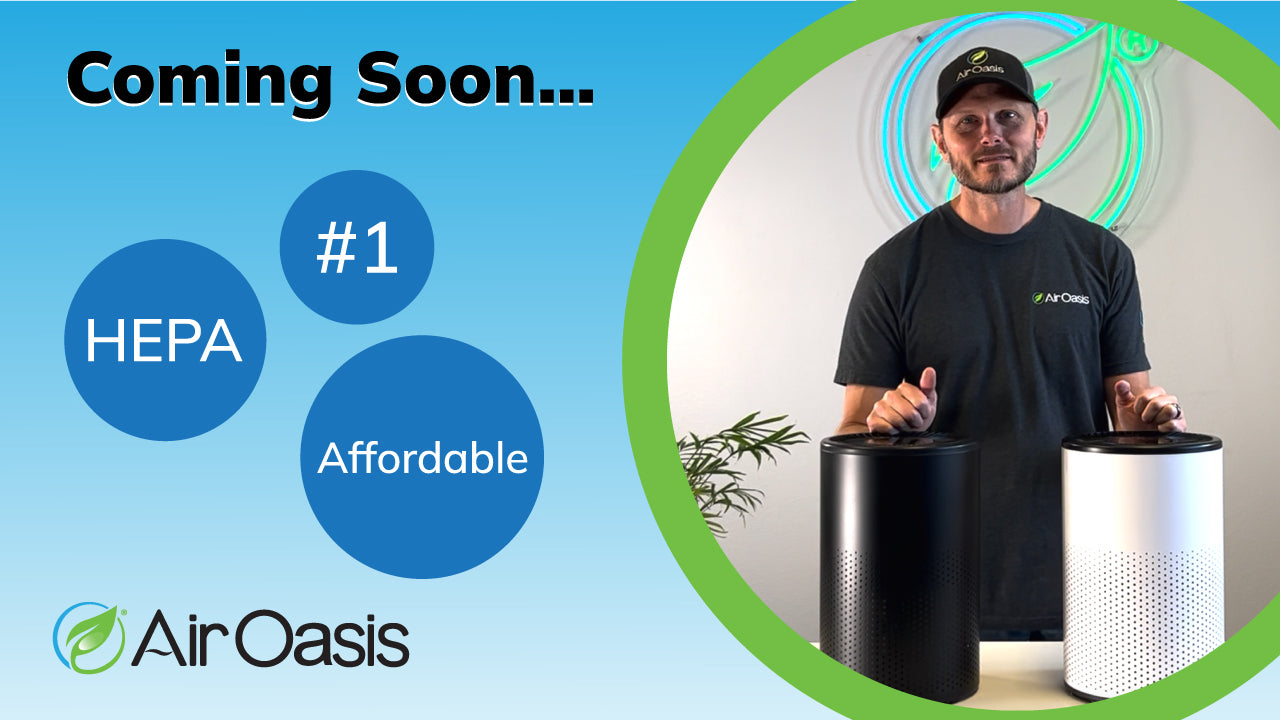If the pandemic taught us anything, it’s that the air we breathe is not always safe. Just because air looks clean and smells clean, does not mean it’s pure. Although viruses have been the primary pathogen of focus, they are not the only contaminants that travel on the breeze.
Climate science tells us that mold exposure is on the rise. As the atmosphere grows warmer, the environment grows wetter and flooding is more commonplace, the concentration of mold spores in the air increases. For people who have mold allergies or are concerned about black mold growth in their homes, this is bad news.
Here’s the good news: Air Oasis purifiers can help with black mold. Our air purifiers remove or reduce numerous airborne contaminants and toxins, including mold and its byproducts. Keep reading to learn how air purifiers can aid in your fight against black mold.
If you suspect black mold in your home, you need to investigate. A high-quality air purifier for mold can protect your family while you search for and remediate any black mold growth.
Where Does Black Mold Grow?
No one wants to think about inhaling black mold spores, or any mold spores for that matter. But the reality is that mold spores are all around us, ubiquitous in indoor and outdoor air. Luckily, most mold spores only trigger mild reactions, although it varies by person and exposure. Toxic black mold, on the other hand, has been known to cause serious health complications.
When we talk about black mold, we’re talking about a particular variety of microfungus known as Stachybotrys chartarum. Black mold requires very specific conditions to grow, including a wet, humid atmosphere, a relatively warm temperature and cellulose-rich material to feed on. Its dependence on these conditions means it doesn’t compete well with other molds and is rarely found in nature.
Is Black Mold Airborne?
If you’ve researched black mold, you may have read somewhere that black mold isn’t as prevalent indoors as other types of mold. That’s not exactly true. Research suggests that black mold is very common in homes and buildings, especially in ones with water damage. However, black mold isn’t commonly found in indoor air samples because it doesn’t release spores as easily as other types of molds.
Although black mold is a relatively uncommon contaminant of most indoor air, it does have the ability to become airborne. However, it only releases spores into the ambient air when it is physically disturbed, especially when wet. When black mold does release spores, it may also release potentially hazardous byproducts called mycotoxins, as well as microbial volatile organic compounds (mVOCs).
Black Mold Mycotoxins
Over the last few decades, there have been many reports of bizarre and severe health effects of black mold exposure. Conversely, many people who’ve encountered black mold have had no health consequences at all. The disparity between life-threatening reactions and no reactions has stirred controversy over whether black mold is actually toxic.
Research suggests that certain mycotoxins — toxic chemicals produced by fungi — play a determining role in whether or not a black mold spores are dangerous to breathe. Although all molds are capable of releasing mycotoxins, not all mycotoxins are equally harmful to health. A portion of black mold colonies produce particularly dangerous mycotoxins called macrocyclic trichothecenes.
Macrocyclic trichothecenes are highly toxic compounds that can cause an array of severe reactions in humans. When inhaled, these chemicals can trigger cell death, activate the inflammatory response and cause serious neurotoxicity. The only way to know if a particular black mold colony is releasing mycotoxins is through laboratory testing.
How to Remove Airborne Mold
Whether you’ve tested for black mold, seen it growing or just suspect it in your home, it’s important to protect yourself and family. Although black mold is insidious and frequently reappears, there are several effective ways to drastically reduce its presence.
The best way to reduce black mold from the air is to remove the conditions for growth in your home. Before attempting mold remediation, it’s critical to follow protocol outlined by the Environmental Protection Agency (EPA). Jumping into the process without the appropriate gear and game plan could put you and your loved ones at risk for exposure.
After you’ve found and removed the black mold growth, it’s important to also remove anything it’s touched. Black mold can’t grow in the absence of excess moisture, so it’s essential to find the source of the water, replacing seals and fixing leaks if necessary. Running a dehumidifier can help keep frequently damp spaces like basements and bathrooms dry.
Remember — black mold spores, particles and mycotoxins are most likely to enter the air when the colony is disturbed. That’s why it’s essential to run an air purifier when you suspect mold, during the mold remediation process and after the mold has been removed.
Best Air Purifiers for Black Mold
A high-quality air purifier can help you avoid the potentially dangerous health effects of black mold. However, not all air purifiers are equally capable of removing black mold from the air. If you want the best air purifier for mold, look no further than Air Oasis.
Our superior air purifiers are expertly built, rigorously tested and used in offices, clinics, research facilities, businesses and homes all over the world. They draw their power from a multi-tiered purification process. Many air purifiers only use one method of cleaning the air, which is generally filtration. Although air filters are a great way to trap certain contaminants, they don’t catch everything.
In contrast, Air Oasis air purifiers utilize the top five purification technologies: true HEPA and activated carbon filtration, bi-polar and cold plasma ionization and ultraviolet light. This gives our air purifiers a unique advantage when it comes to reducing tiny airborne particles like mold spores and mVOCs, as well as the ability to eliminate some contaminants from surfaces.
At Air Oasis, we understand how important it is to substantiate a product’s claims with proof. That’s why we encourage you to read the scientific studies that demonstrate our purifiers’ ability to reduce airborne mold.
Questions? We’d love to chat with you! Contact us online or give us a call at (806) 373-7788.

